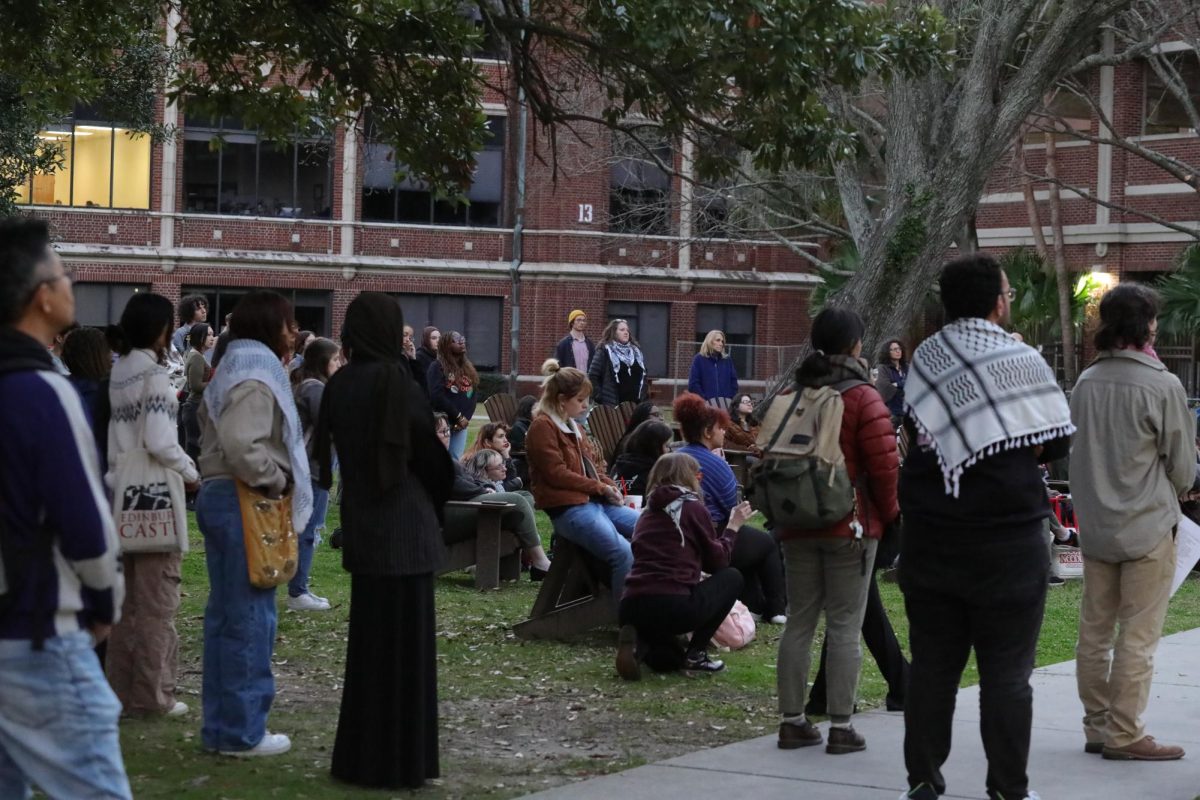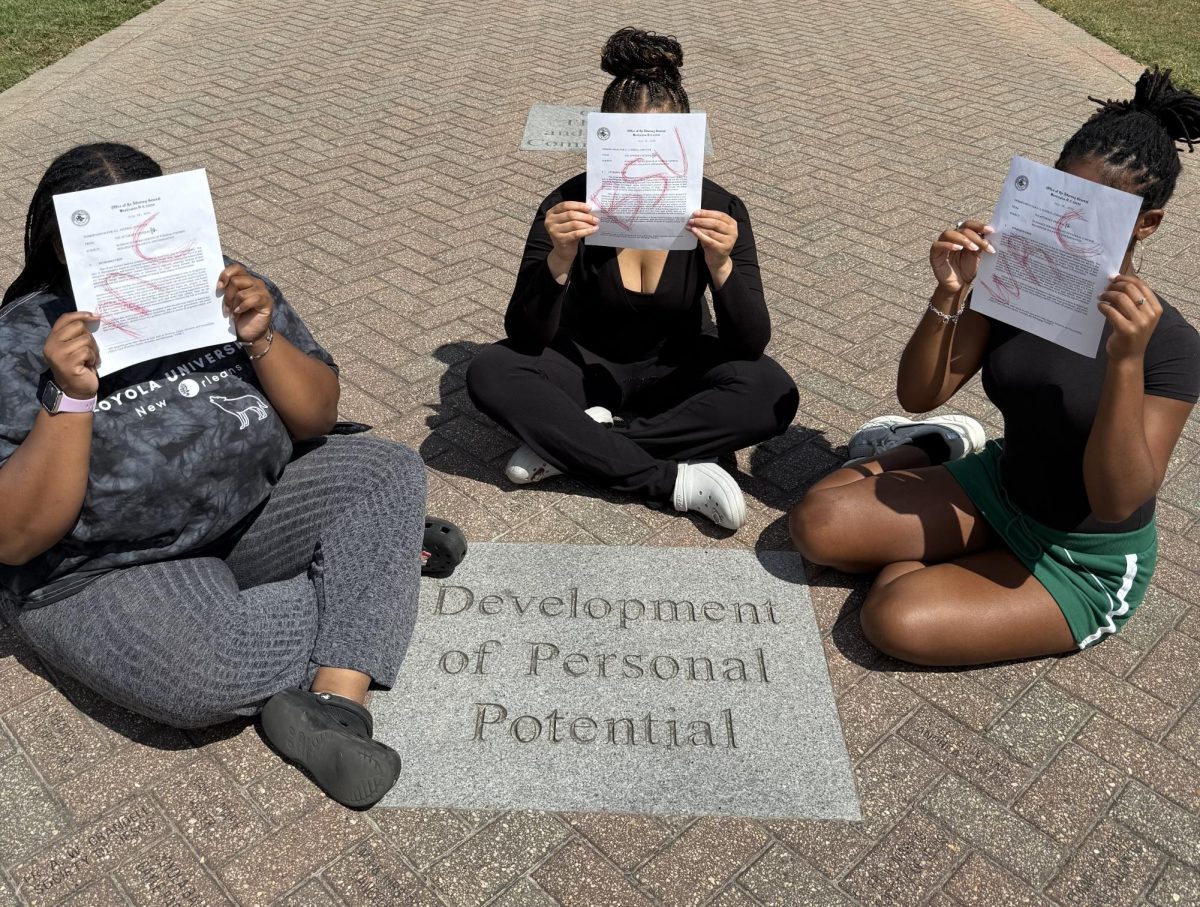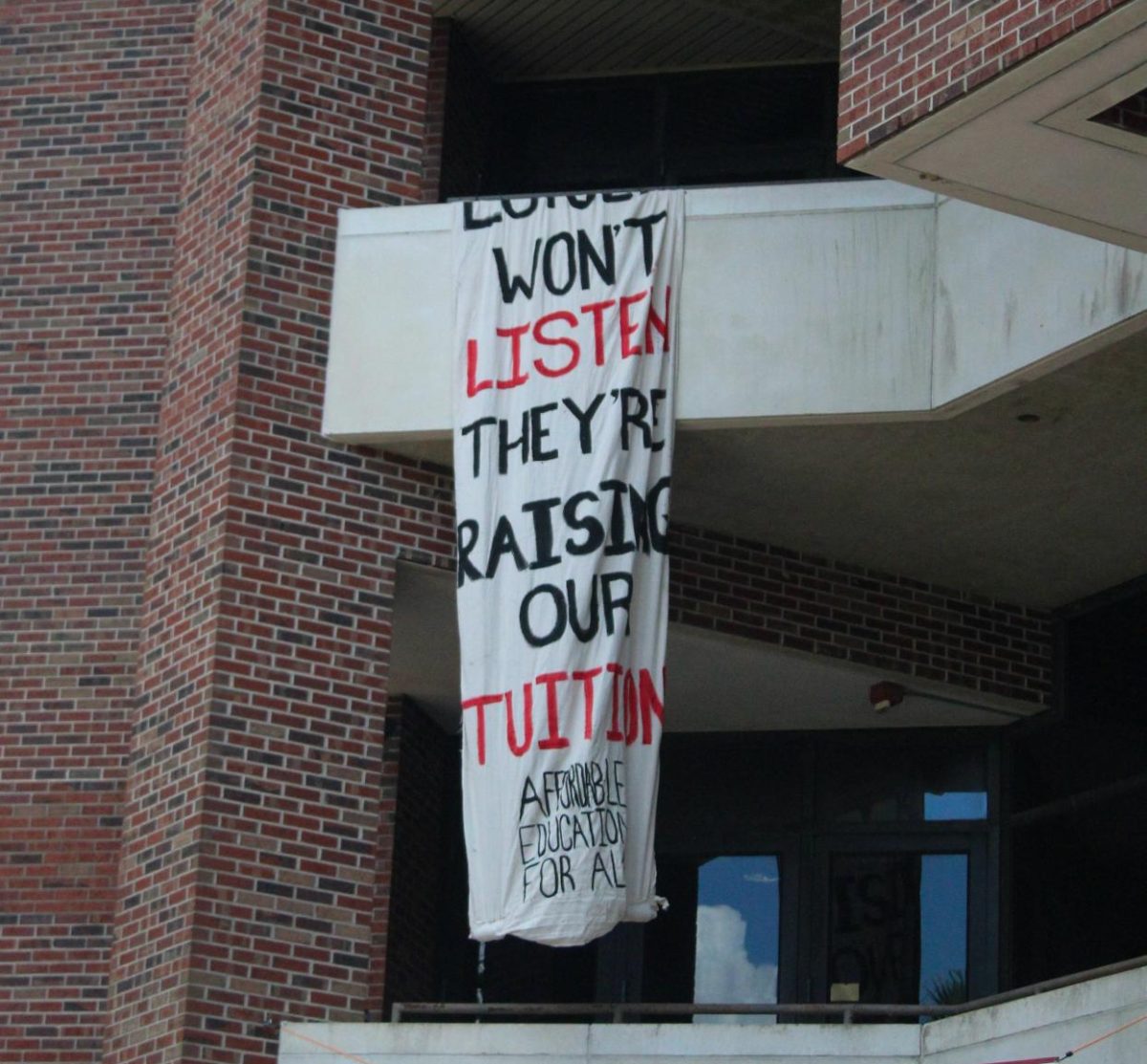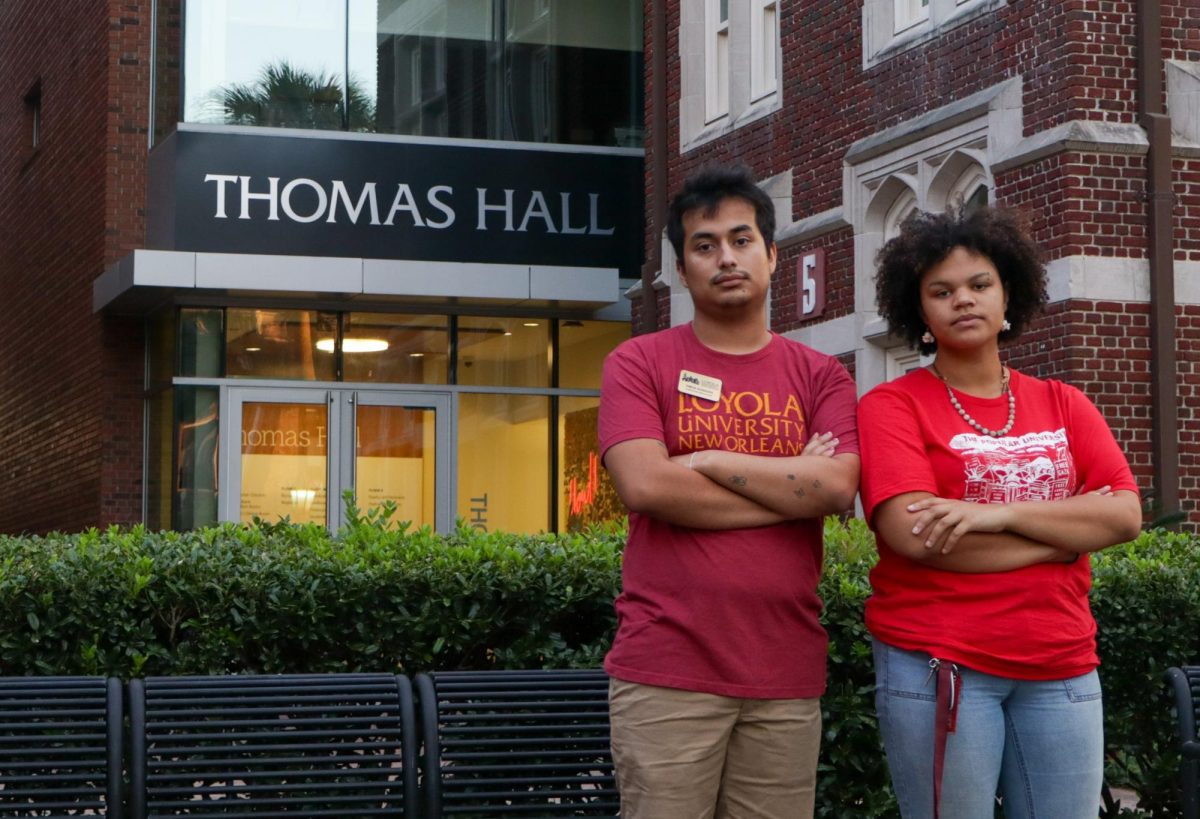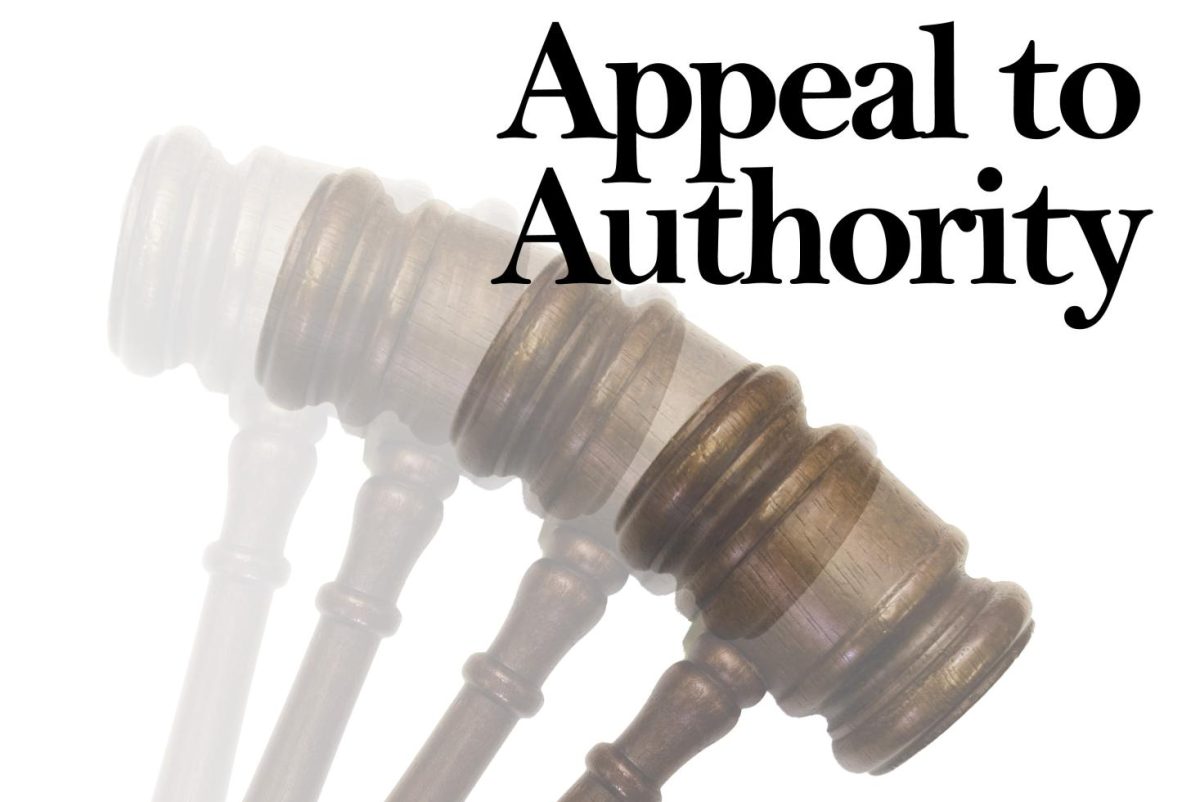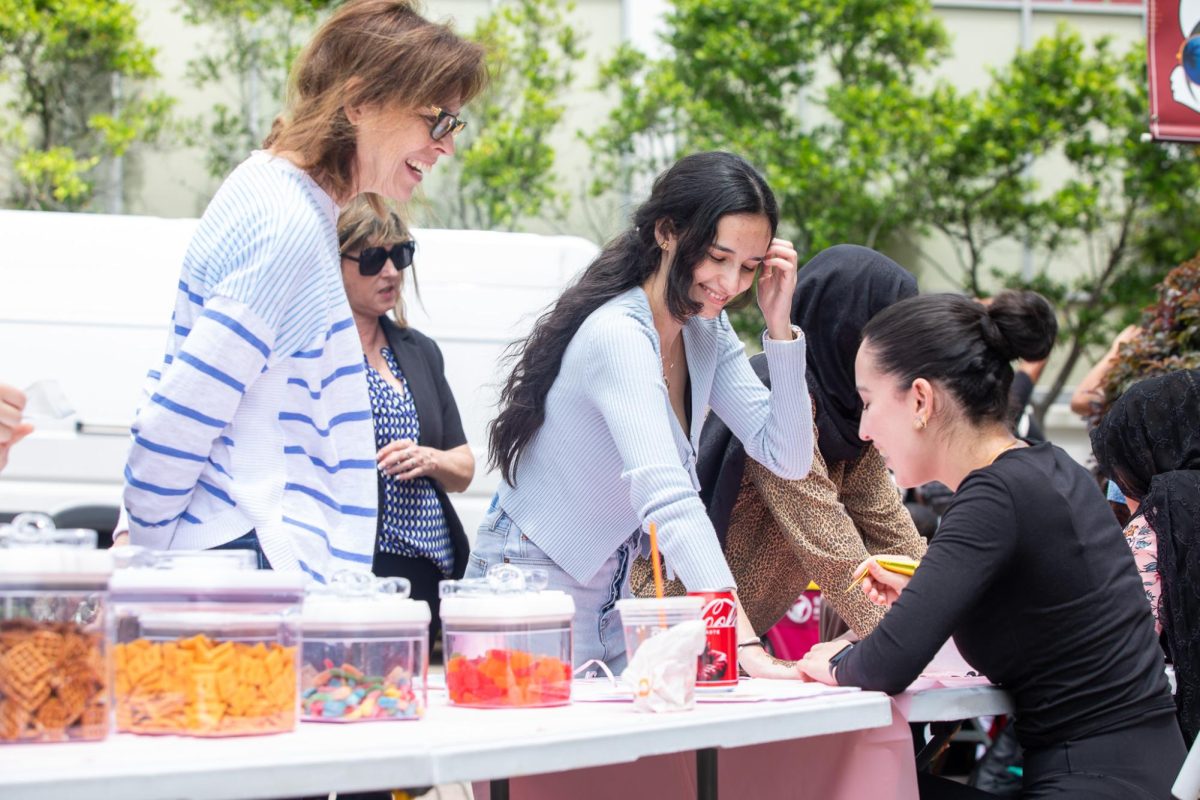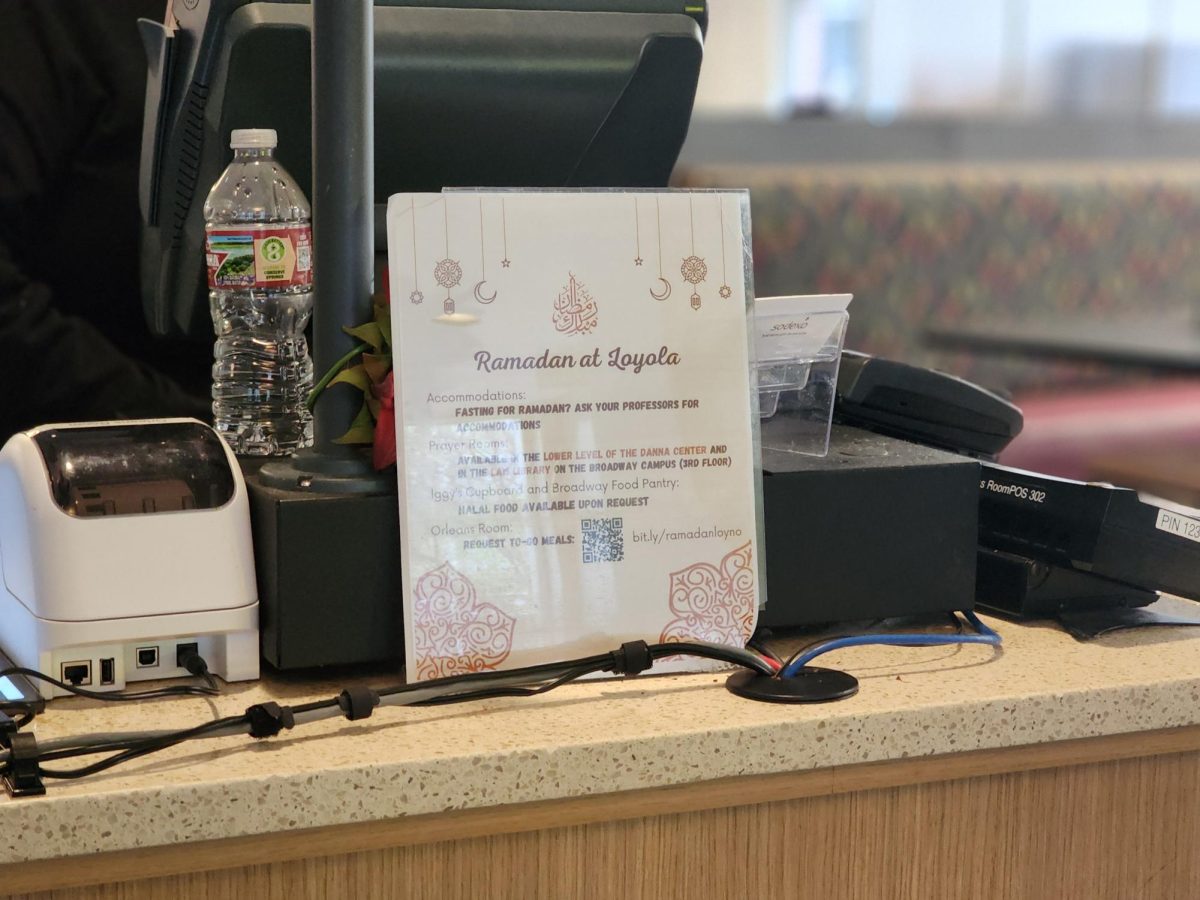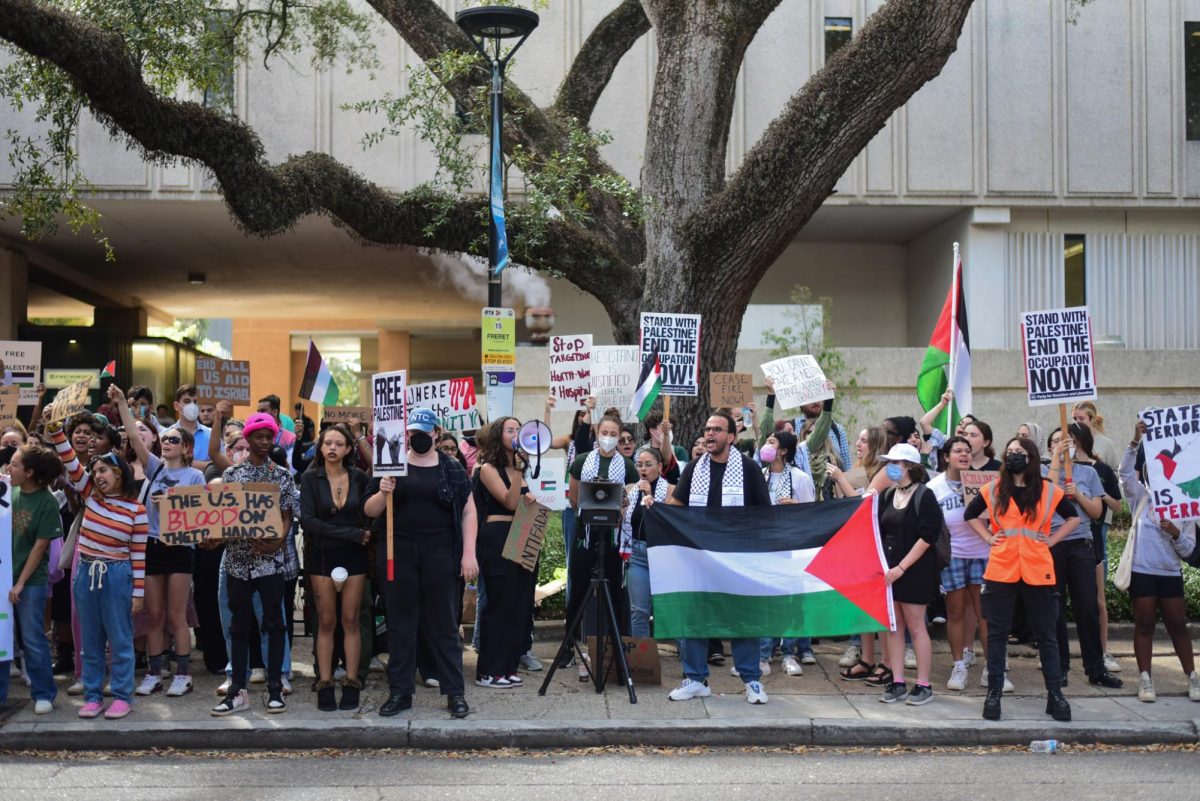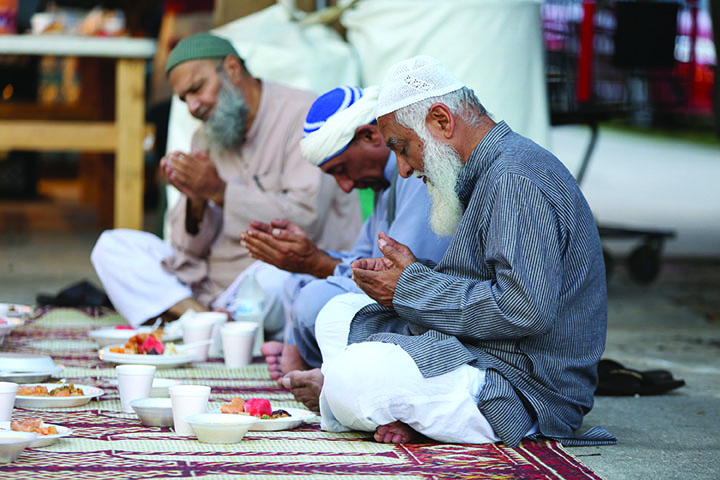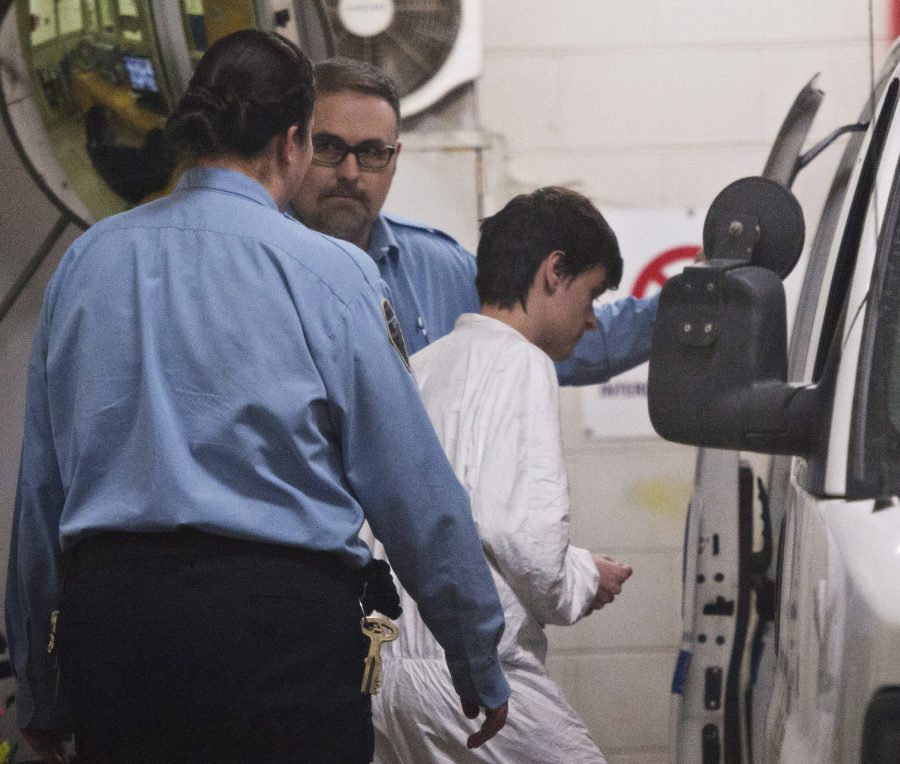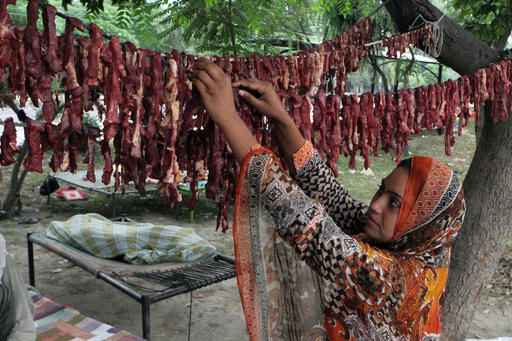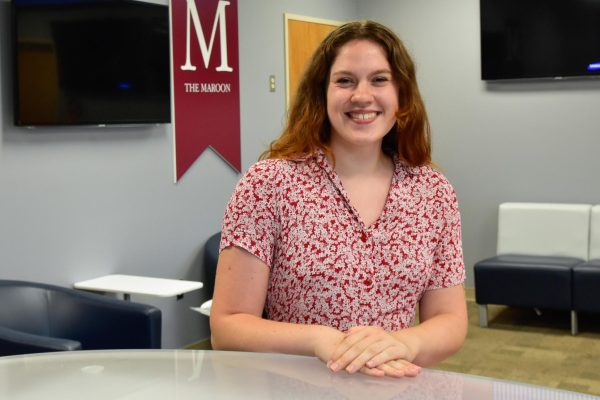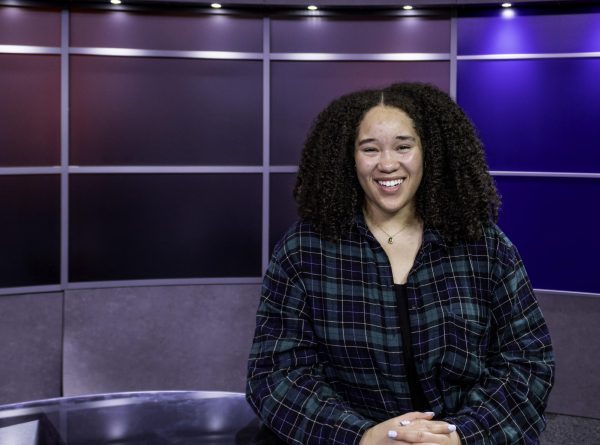The Loyola chapter of Students for a Democratic Society and the Muslim Student Association said they went back and forth with administration for months to plan an interfaith vigil for “Palestinian martyrs.”
“We went to the administration. We submitted forms,” SDS president Carson Cruse said, “Three times, we submitted a vigil form…we were denied every time.”
Cruse said he, along with MSA president Talla Essa, met with the administration via Zoom on Nov. 1, 2023 to discuss their security concerns with the proposed vigil, which was scheduled for October 2023.
They said the Zoom included two administrators – Alicia Bourque and Dale O’Neill – along with Loyola Police officer Patrick Martin.
According to Essa and Cruse, Bourque, vice president of student affairs, asked them where the administration should start reaching out to Palestinian students.
Wessa said she told Bourque to start with the members of MSA; however, MSA members said they received no further communication from Bourque or the administration, according to Essa.
“They said that they were actually contacted by the New Orleans Police Department,” Cruse said.
Cruse believed this to be blatant racism.
Cruse said he was told NOPD thought the event to be “dangerous and a threat to the city.”
Bourque did not respond in time for publication.
The Loyola chapter of Students for a Democratic Society, the Muslim Student Association and the Jesuit Social Research Institute sponsored the vigil, and they all split the $420 cost to pay four police officers to attend the vigil and provide a law enforcement presence, Cruse said.
“It’s very clear because it’s the Muslim Student Association associated with this that there’s for some reason more of a threat,” he said.
University spokesperson Rachel Hoormann said, “The university has policies and procedures, outlined in the Student Organization Handbook, that govern events hosted by student organizations, including protests and vigils.”
According to Hoormann, campus safety is the main concern for these kinds of events, but they also keep in mind any disruptions an event would bring to normal university operations.
“When an event plan does not fully show evidence to support those priorities, it will be denied,” Hoormann said.
Hoormann did not directly comment on the previously denied vigils.
Another area of frustration for many students was the perceived difference in how Jewish and Muslim and Arab students were treated by the university following Oct. 7, which is when Hamas launched an attack on Israeli territory near Gaza.
Camila Sobral, a Loyola graduate student and member of Jewish Voice for Peace, said “I got an email a few days after Oct. 7 that said, ‘our files indicate that you may have been affected by what is happening in Israel’.”
According to Sobral, they received at least two emails from the university regarding Oct. 7.
Sobral said, “My first reaction was like. ‘I hope you’re also reaching out to your Muslim, Arab, Palestinian students.”
When asked about university communication and support following Oct. 7, Palestinian student Nour Saad said she did not receive any emails from the university.
Saad said she was affected emotionally by the violence in Gaza.
“I needed like a week off because I just couldn’t handle school,” Saad said.
When asked about the discrepancy in support from the university, Hoormann said “Our outreach to students following Oct. 7 was based on the information that we had available at the time.”
This information was from student applications to Loyola. If a student didn’t indicate they were from Palestine or Muslim on the application, then the university did not reach out to them, according to Hoormann.
“As we learned of more students who were impacted by the conflict in the Middle East, we conducted outreach to them, as well.”
MSA leaders say they received no direct communication from the university, acknowledging the war in Palestine or offering support.


